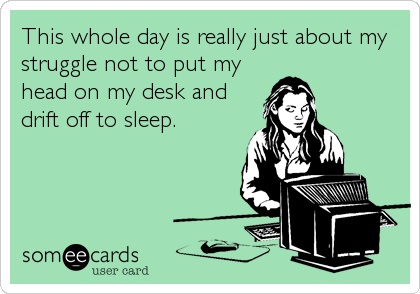Are Millennials Really Swiping Left on Associations?
There’s a lot of concern out there about who millennials are, what they value, and what associations and employers can do to hang on to them.
Notice that I didn’t write, “What millennials can do to hang on to their associations and employers,” because most articles you can find online refer to my generation as entitled, self-important creatures who need regular naps.

Most generational researchers call anyone born between 1982 and 2000 (today’s 16 to 34 year-olds) a millennial. According to the U.S. Census, millennials are 83.1 million-strong in America, and while the younger ones are still in school, the older ones are in their early to mid-thirties and entering the prime of their careers.
![]()
10,000 Baby Boomers retire each day. Associations are looking to millennials to fill their membership shoes.
A quick Facebook survey shows that millennials are just as serious as older generations about networking, learning, advocacy and advancing their careers.
Cost limits some millennials, but most chalk the expense of membership up to the price of doing what they love.
At the same time, Baby Boomers (born between 1946 and 1964) are retiring at an estimated rate of 10,000 per day. With so many people ending their formal careers, trade and professional associations are getting a bit worried about where their future members are going to come from.
Conventional wisdom says millennials aren’t joiners. We don’t want to pay dues to an organization when we have the Internet. We don’t want to pay to attend a monthly luncheon or an annual meeting when we have free networking platforms like Facebook, Twitter and LinkedIn. We don’t need to meet people face-to-face because we have messaging apps like Whats App, Kik and Gchat. If we do want to see people, we can use Hangouts, Skype or Periscope. We don’t even need to join associations for the ancillary benefit of social connections because we have Instagram, Bumble, and Tinder. We’re swiping left on associations.
Really?
Read how Patrick Leclerc and CUTA are giving millennials more time at the mic.
I recently took to Facebook to ask my fellow millennials why they are (or are not) a member of an association. (Yes, I recognize the irony of this method of collecting information, but it was convenient.) Here’s my original post:
“Are you 35 or younger and a member of an association? I want to know why! Professional association, bar association, trade association, social association . . . Why do you join and get involved, why have you joined but not gotten involved, OR why you are staying away from associations?”
Half a dozen people replied within a few hours, and half a dozen more replied within the next few days. Most responses were pro-association: My friends and acquaintances join professional associations because they know there’s educational, professional, and relational merit to being a member. For some, joining an association is the only way to access important benefits. Cost is a concern or a limiting factor for some, but most seem to chalk the expense up to the price of doing what they love.
Here are their unvarnished answers. Maybe millennials are joiners after all:
- “To be involved in the community, network, educate myself, meet new friends, volunteer…”
- “Why I join: it’s good for my CV, makes networking easier, and gets me discounts for conference registration fees. Why I’m not actively involved: It is more work than it’s currently worth for where I am now in my career (i.e. it is a low priority for my time).”
- “I’m in the Young Nonprofit Leadership Association. I joined because it’s affordable and seemed like a great way to network. But I haven’t been able to find the time to participate in events yet, so I haven’t necessarily benefited from it. I’d like to join the Georgia Chapter of the National Association of Social Workers, but it’s expensive and with my license renewal every two years, I haven’t been able to fit it in my budget.”
- “I’m in multiple forensic associations local, state, and national. I joined for training purposes and to make contacts. It never hurts to know others in your field. Especially in law enforcement. [You] never know who you are going to need a helping hand from one day. I also have my certifications through one of the associations.”
- “The emails. So many associations send so many emails. And you always have that one person who replies all to everything. Then there are the donation requests, lots of them require inordinate time commitments, and the events are less networking and more sit and listen to this lecture.”
- “I was in a professional one for a LONG time (and am still in two) and they both drive me crazy with the emails. The social one I tried one, and mercy. It just got to be too much.”
- “Member of Junior League of New Orleans because there is always a need to give back, I have the time and money to cover the yearly dues ($220/year) and the networking and camaraderie is unmatched!”
- “[I belong to] two different professional associations. [For] access to information regarding revolutions and cutting edge technology in our industry, lower conference fees and ability to network and bounce ideas off of others. I regularly participate, at least once every other week, but not daily like some of my counterparts mainly because I don’t have time to utilize the resources more fully. It’s very common in my business to be in more than one–many are involved in a state, region, and a national association. Conferences and conventions are in person get-togethers and round tables for the association which happen about one time per year each. In between, I engage online in forums or via email with the contacts I have made.”
- “I have a membership in my professional association because a) it’s actually required to be an internship director in my field, b) the association provides invaluable political advocacy, educational materials, and easy access to professional support ifyou need it, c) they also provide access to [the] two biggest research journals in my profession for free with membership, D) quarterly newsletters. Most of my involvement is receptive and online but I (or others from my agency) regularly attend conferences hosted by the association. Also, my agency is affiliated with the state and national agencies for my segment of the medical industry (hospice) and all employees at member agencies automatically are members. I’ve served on a committee for the state association because it’s a great opportunity for education and advocacy.”
Are you a millennial? Why are you (or not) a member of a professional association?
Are you the supervisor, co-worker or parent of a millennial? Why do you think they’re joining/not joining?


